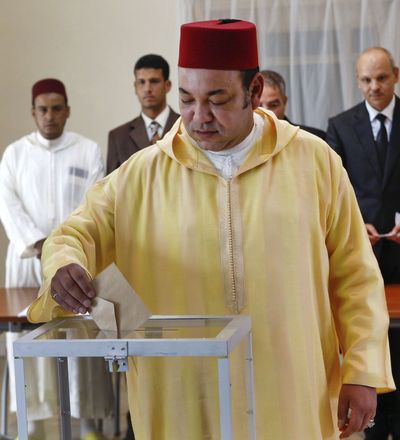Moroccans say yes to reform constitution
Some pro-democracy activists skeptical

RABAT, Morocco – Moroccans on Friday overwhelmingly approved a new constitution their king says will bring the country much-needed democratic reform, the Interior Ministry announced.
The preliminary results showed a 98.94 percent approval rating and 72.56 percent turnout and appeared to indicate strong belief by Moroccans in the king’s promises of reform just months after hundreds of thousands marched throughout the North African country calling for more democracy.
The huge turnout Friday announced by the government was in stark contrast to the 37 percent that voted in 2007 parliamentary elections, and evoked some skepticism among pro-democracy activists.
“Now we have become a banana monarchy,” said Elaabadila Chbihna of the pro-democracy February 20 movement, whose demonstrations over past months sparked King Mohammed VI’s decision to amend the constitution. “I am very skeptical; by 2 p.m. very few people had been to the polling stations.”
The amended constitution gives more power to the parliament and the prime minister and guarantees the independence of the judiciary, while still leaving control in the hands of the king.
The February 20 movement had called for a boycott, saying the new constitution was drawn up without consulting the public and was little more than democratic window dressing on a monarchy that continues to be absolute.
In Washington, a State Department spokesman said that the United States welcomed the peaceful conduct of the referendum during a period of profound change for Morocco.
Morocco, like the rest of the Middle East, was swept by pro-democracy demonstrations protesting a lack of freedoms, weak economy and political corruption.
Yet even as the government and many politicians were despised, the king remained popular and for now seems to have managed the widespread disaffection by presenting a new constitution that guarantees the rights of women and minorities, and increases the powers of the parliament and judiciary, ostensibly at the expense of his own.